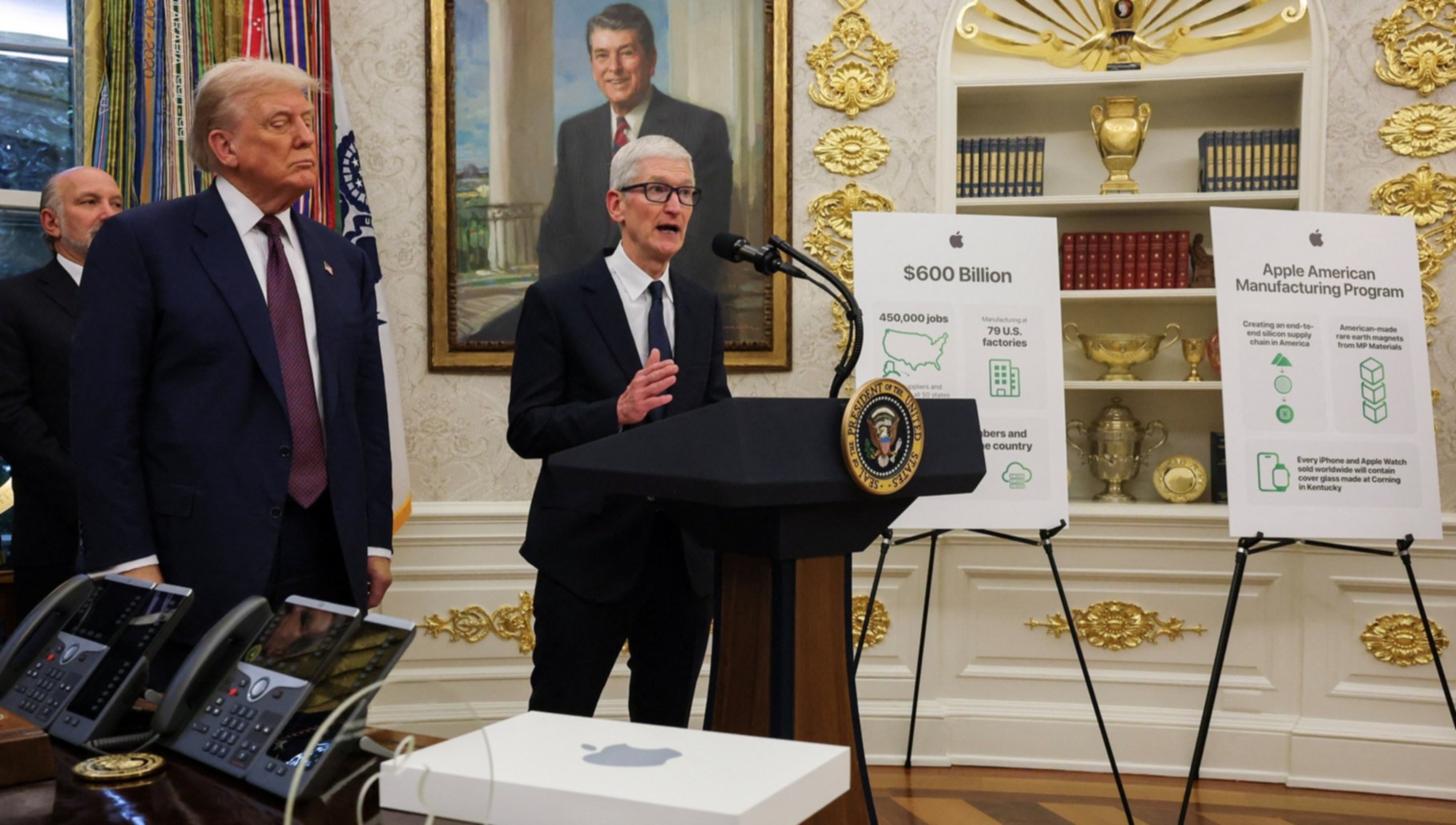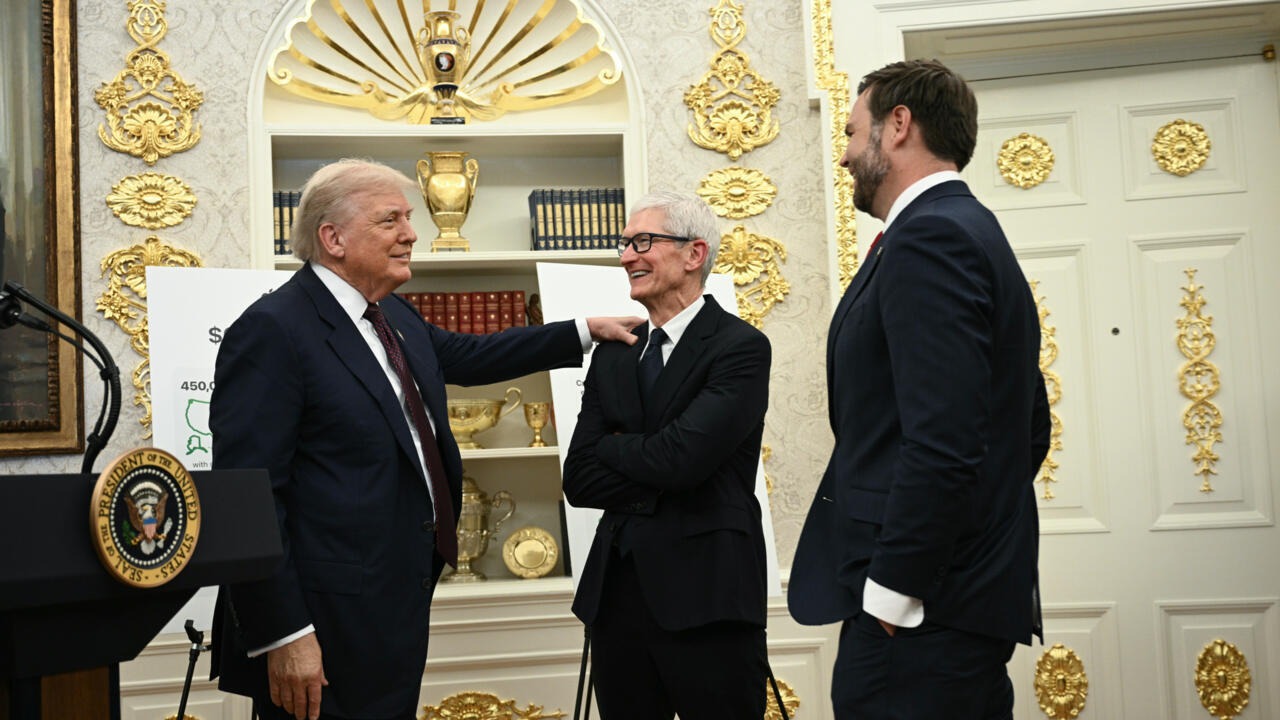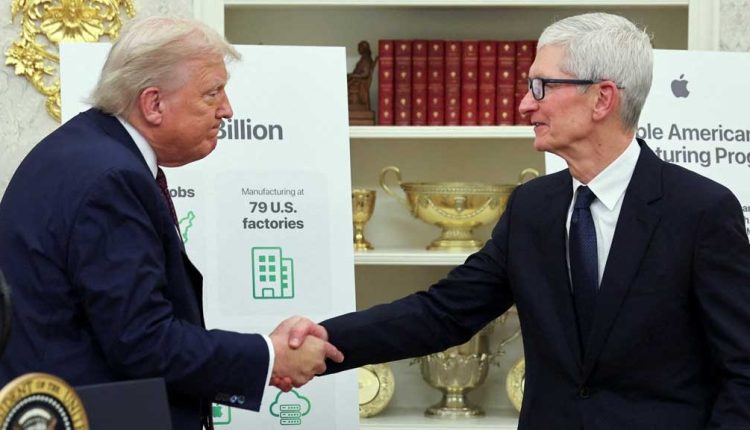Apple’s $600 Billion US Manufacturing Pledge
Apple Commits $600 Billion to US Manufacturing Expansion Amid Escalating Tariff Pressures
Cupertino, California — In a landmark move reflecting shifting global trade realities, Apple CEO Tim Cook announced an additional $100 billion investment in U.S. manufacturing infrastructure this week, bringing the tech giant’s total domestic commitment to $600 billion through 2029. The strategic expansion revealed alongside President Donald Trump at the White House aims to fortify Apple’s supply chain against escalating tariffs while advancing the administration’s “America First” economic agenda.
The Tariff Catalyst
President Trump’s aggressive trade policies have reshaped corporate calculations. In May, he threatened a 25% tariff on Apple unless it shifted iPhone production stateside, later proposing 100% tariffs on imported semiconductors. These policies already cost Apple $800 million last quarter, with another $1.1 billion projected this September. Wednesday’s $100 billion pledge, timed alongside Trump’s new 50% tariff on Indian goods, secures Apple exemptions from semiconductor levies and mitigates future risks. As Wedbush analyst Dan Ives noted, the investment represents “the cost of doing business” under current trade policies.

Inside the American Manufacturing Program
Central to Apple’s strategy is the newly launched American Manufacturing Program (AMP), designed to incentivize domestic production through partnerships with 10 key suppliers:
Corning: Receives $2.5 billion to produce 100% of iPhone and Apple Watch cover glass in Harrodsburg, Kentucky, the first time all cover glass for global devices will be U.S.-made. The investment expands Corning’s workforce by 50% and establishes a joint innovation hub.
Semiconductor Ecosystem: Apple is building an end-to-end U.S. silicon supply chain. Partners include TSMC (Arizona chip fab), Samsung (Texas-based chip innovation), Texas Instruments (Utah/Texas plants), and Amkor (Arizona packaging). Together, they’ll produce 19 billion Apple chips in 2025 alone.
MP Materials: A $500 million rare earth magnet deal brings vibration motor production to Texas, reducing dependence on Chinese minerals.
Jobs and Economic Impact
Apple’s commitment includes hiring 20,000 U.S. employees primarily in R&D, silicon engineering, and AI while supporting 450,000 existing supplier jobs nationwide. New facilities in Houston (AI servers), North Carolina (data centers), and Austin (R&D campus) underscore the scale of this expansion.

Analysis: Substance or Symbolism?
While politically strategic, analysts question how much new ground Apple covers. Morgan Stanley noted Corning already supplied 100% of Apple’s cover glass, suggesting AMP partnerships largely formalize existing relationships. Cook tacitly acknowledged limits to reshoring, stating iPhone assembly will remain overseas “for a while”. Manufacturing experts like Babson College’s Peter Cohan view the announcement as “savvy navigation” of political pressures rather than revolutionary change: “CEOs give the president something to brag about without destroying their company”.
Market and Industry Implications
Investors rewarded Apple’s maneuvering with a 5% stock surge, though shares remain down 14% year-to-date amid AI competition concerns. The deal sets a precedent for multinationals navigating protectionist policies, particularly as Trump’s semiconductor tariffs threaten to fracture global supply chains. As White House spokesperson Taylor Rogers declared, the partnership is producing critical components to protect America’s economic and national security.
Apple’s commitment reflects a pragmatic adaptation to geopolitical realities. With tariffs weaponizing U.S. market access, the tech giant’s investments insulate its operations while yielding political goodwill. Yet as assembly lines stay rooted in Asia, the $600 billion pledge underscores a hard truth: even the world’s most valuable company must balance innovation with survival in an increasingly polarized trade landscape.
Subscribe to my whatsapp channel


Comments are closed.